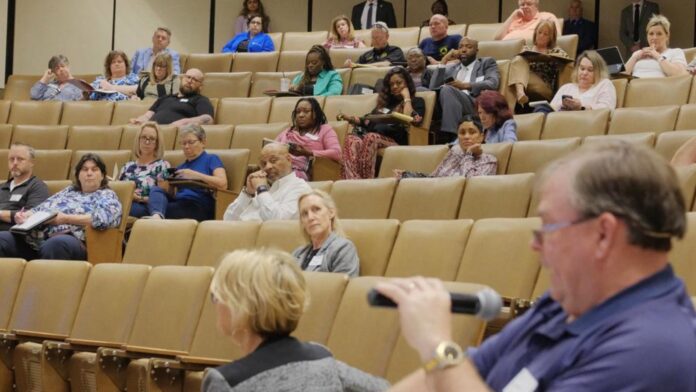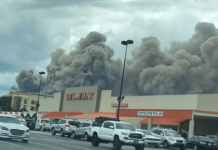
The list of Georgia programs funded by the first year of the state’s opioid settlement money has been released after final approval by the state trustee, Department of Behavioral Health and Developmental Disabilities Commissioner Kevin Tanner.
Programs range from research to addiction prevention, harm reduction, treatment and recovery.
Just over $70 million will go out over two years for 128 projects. The money is part of the court damages paid by opioid distributors and manufactures to the state which will be allocated to the state over several years.
These programs, as well as any other programs funded by settlement money, are intended to address local needs in communities hard hit by the opioid crisis. These most recent awards required some local input before being sent to the Georgia Opioid Crisis Abatement Trust for review.
Those awarded include a rural hospital for overdose reversal training and expansions to drug court programs. Most of the money is going toward recovery and treatment, run by a variety of nonprofits, clinics and universities.
Regionally, awards skew toward programs in North Georgia, which got 24% of the total funds.
J. Aaron Johnson, a public and preventative health professor at Augusta University, was one member of the Regional Advisory Council for Region 2, one of the largest regions that includes Macon, Augusta and Athens. This region received around 14% of the award money.
RAC’s were tasked with being the first to look over and grade applications.
Speaking for his region, Johnson said there was a general agreement that awards be fairly distributed across the spectrum of addiction care.
“We weren’t focused solely on one approach to addressing the epidemic,” Johnson said.
Also that they be spread evenly across counties.
“Particularly for me, it was something that I advocated for very strongly,” Johnson said. “Making sure that funding is spread across the district and not concentrated in one area.”
A full list of first and second year awards can be found here. Each falls under a category on the spectrum of care for addiction, explained Executive Director of the Opioid Crisis Abatement Trust, Holly Lynde during a DBHDD board meeting yesterday.
“They couldn’t just say like, we want to do something without actually saying it’s under this category,” Lynde said. “And then we would look at it and say, okay, yes, it’s in that category.”
This is the first round of grants as opioid settlement money comes down the pike from companies including Janssen Pharmaceuticals, Johnson and Johnson and the McKesson Corporation. The state has also settled with Teva Pharmaceuticals and Walmart, Walgreens and CVS. A settlement with Kroger was finalized in November with an estimated $55 million coming to the state.
Johnson said for the next rounds of applications for organizations to receive funds –– so far, there is no announcement for when that will be–– he’d like to see the process for opioid settlement money made more accessible to rural areas.
“People who know how to write the proposals the best are people who live in the larger municipalities,” Johnson said. “And so you end up getting a small number of applications from rural areas of Georgia.”
Providing consultation and assistance to organizations in rural areas could encourage more, and stronger, applications, Johnson said.
Local governments are also slated to get their share as litigants from major distributors, roughly $159 million, or 25% of total settlement funds that have been finalized. Municipalities, which include counties, school districts and some sheriff’s departments, are not expected to disclose how that money gets spent.
Meanwhile Georgia and others are still in a holding pattern in lawsuits against opioid manufacturer Purdue Pharma, which was denied bankruptcy earlier this year in a Supreme Court decision. That decision got both praise and criticism, since it essentially voided a nearly $8 billion settlement agreement reached between the company and hundreds of litigants. It may be years before money from Purdue Pharma gets to the communities most damaged by the epidemic it played such a big part in creating.







